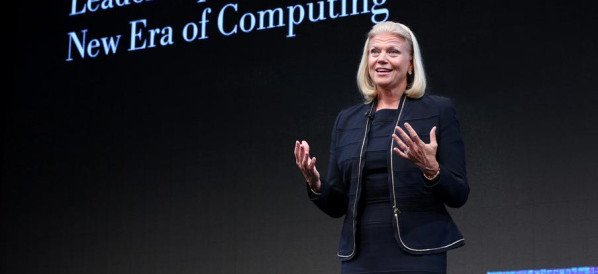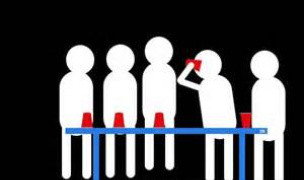 10 Terms
10 TermsHome > Terms > English (EN) > presidency
presidency
The president of the United States is one of the most powerful political figures in the nation and the world. As the leader of the United States, he or she is expected to create and implement new legislation and involve the United States in the affairs of other countries. Yet little power is invested in the office of the president itself. A president cannot enact legislation on his or her own (though he or she can sometimes affect how it is implemented). The president’s official power is limited to the very bare outlines of the Constitution; furthermore, the informal power that usually comes of being head of a party is unavailable to him or her because Congress is often controlled by members of another party and, even if the presidency and Congress are held by the same party discipline in American political parties is weak. The president, then, must rely on other sources of power in carrying out the tasks he or she is expected to handle.
The official powers of the president are enumerated in Article II of the US Constitution. They include the power to pardon criminals, the power to make treaties (with the approval of two-thirds of the Senate) and the office of Commander in Chief of the armed forces. The president is also responsible for reporting to Congress on the state of the union and making recommendations to Congress. The president’s legislative power is limited to the ability to veto legislation approved by Congress.
It is clear that the president’s role extends beyond the completion of the duties enumerated in the Constitution. The president has become a prominent and powerful political figure. Domes-tically, he or she presents a budget to Congress every year, creates and introduces legislation to Congress and tries to direct the economic affairs of the nation; yet the official powers of the president have not changed since the Constitution was created more than 200 years ago. There is a great deal of debate over how it is that the president manages to acquire this power. There are those who argue that the president’s power is highly personal; powerful presidents have the ability to persuade Congress to go along with what they want. Others claim that presidents can get Congress to implement particular policies by increasing public support for those policies, increasing fears that members of Congress will not be re-elected if they do not vote for policies the public wants. Still others argue that the amount of power a president wields is determined by the president’s place in time; personal qualities and actions have little to do with what a president can accomplish. There are also those that believe that a president’s power depends entirely on whether Congress and the president are of the same party.
Efforts have been made in recent years to increase the president’s legislative power.
The creation of a line-item veto, which would allow the president to veto certain parts of a bill without vetoing it in its entirety, was heavily debated in the early 1990s. Congress passed legislation giving the president the power of line-item veto over budget bills; this legislation came into effect on January 1, 1997. However, a year later the Supreme Court declared the line-item veto unconstitutional.
In foreign affairs, the president has considerably more constitutional power. The president’s position as Commander in Chief of the armed forces has allowed him to take actions that were not endorsed by Congress, frequently using this power to involve the country in military conflicts. The Gulf of Tonkin Resolution, passed in August of 1964 at the request of President Johnson, granted the president the power to use military force to “repel any armed attack against the forces of the United States and to prevent further aggression.” This allowed presidents Johnson and Nixon to begin and continue the Vietnam War without any declaration of war. This large grant of power was limited by Congress when they passed the War Powers Resolution of 1973; however, many presidents have refused to abide by the resolution. For instance, the initial deployment of troops into Iraq by President Bush was not endorsed by Congress (although Congress later voted to support these actions and allow the president to take any others he felt necessary), and Bush continued to insist that he did not need congressional approval at all.
The only way to remove a president from office is through the process of impeachment. A president can be impeached if he commits bribery treason, or “high crimes and misdemeanors.” While the definitions of bribery and treason are clear, the definition of “high crimes and misdemeanors” is not; it is under this category of crimes that claims of impeachable offenses are usually made. The impeachment procedure has two stages: in the first, the House of Representatives votes on articles of impeachment. If the House decides that formal charges are relevant and significant, an official trial is held in the Senate. Two presidents have been impeached: in 1868 Andrew Johnson narrowly escaped being stripped of his office by one vote in the Senate; in 1999 Bill Clinton was saved by a party-line vote also falling short of the necessary two-thirds majority. But, in 1974, a House committee recommended that members of the House of Representatives vote “yes” on articles of impeachment for Richard Nixon, leading the president to resign before the issue was voted on.
- Part of Speech: noun
- Synonym(s):
- Blossary:
- Industry/Domain: Culture
- Category: American culture
- Company: Routledge
- Product:
- Acronym-Abbreviation:
Other Languages:
Member comments
Terms in the News
Billy Morgan
Sports; Snowboarding
The British snowboarder Billy Morgan has landed the sport’s first ever 1800 quadruple cork. The rider, who represented Great Britain in the 2014 Winter Olympics in Sochi, was in Livigno, Italy, when he achieved the man-oeuvre. It involves flipping four times, while body also spins with five complete rotations on a sideways or downward-facing axis. The trick ...
Marzieh Afkham
Broadcasting & receiving; News
Marzieh Afkham, who is the country’s first foreign ministry spokeswoman, will head a mission in east Asia, the state news agency reported. It is not clear to which country she will be posted as her appointment has yet to be announced officially. Afkham will only be the second female ambassador Iran has had. Under the last shah’s rule, Mehrangiz Dolatshahi, a ...
Weekly Packet
Language; Online services; Slang; Internet
Weekly Packet or "Paquete Semanal" as it is known in Cuba is a term used by Cubans to describe the information that is gathered from the internet outside of Cuba and saved onto hard drives to be transported into Cuba itself. Weekly Packets are then sold to Cuban's without internet access, allowing them to obtain information just days - and sometimes hours - after it ...
Asian Infrastructure Investment Bank (AIIB)
Banking; Investment banking
The Asian Infrastructure Investment Bank (AIIB) is an international financial institution established to address the need in Asia for infrastructure development. According to the Asian Development Bank, Asia needs $800 billion each year for roads, ports, power plants or other infrastructure projects before 2020. Originally proposed by China in 2013, a signing ...
Spartan
Online services; Internet
Spartan is the codename given to the new Microsoft Windows 10 browser that will replace Microsoft Windows Internet Explorer. The new browser will be built from the ground up and disregard any code from the IE platform. It has a new rendering engine that is built to be compatible with how the web is written today. The name Spartan is named after the ...
Featured Terms
Virginia Rometty
Virignia Rometty is an American business executive. She is the current Chairman and CEO of IBM, and the first woman to head the company. Power People ...
Contributor
Featured blossaries
stanley soerianto
0
Terms
107
Blossaries
6
Followers
Top 10 Most Venomous Snakes
 10 Terms
10 Terms
Browers Terms By Category
- Hats & caps(21)
- Scarves(8)
- Gloves & mittens(8)
- Hair accessories(6)
Fashion accessories(43) Terms
- Christmas(52)
- Easter(33)
- Spring festival(22)
- Thanksgiving(15)
- Spanish festivals(11)
- Halloween(3)
Festivals(140) Terms
- General law(5868)
- Contracts(640)
- Patent & trademark(449)
- Legal(214)
- US law(77)
- European law(75)
Law(7373) Terms
- Muscular(158)
- Brain(145)
- Human body(144)
- Developmental anatomy(72)
- Nervous system(57)
- Arteries(53)
Anatomy(873) Terms
- Human evolution(1831)
- Evolution(562)
- General archaeology(328)
- Archaeology tools(11)
- Artifacts(8)
- Dig sites(4)




